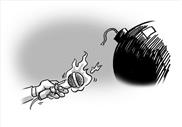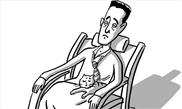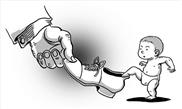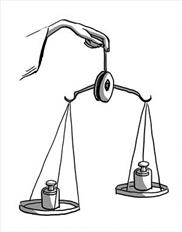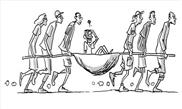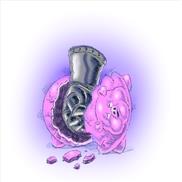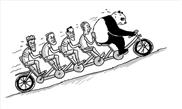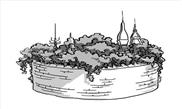Indian journalists filled in information gaps during crisis
Rather than the nationalism and jingoism of the past, the role of media in India was different this time. The Indian media highlighted the issue of this conflict, reporting it as breaking news until change was made.
Media's sensational reporting stirred potential conflict
Regardless of the motivations, there have been suggestions that the Indian media spurred its government to act and served as an information source in an opaque environment. This characterization, however, needs to be carefully assessed. There is a case to be made for the ability of the media to pressure the government into taking a stronger stand, but there are costs to such an approach. Media reports rapidly crossed from fact into speculation and spin.
Every generation faces easy stereotypes from lazy media
Youthful spirit isn't dependent on generation, and a brief look back shows that the media in many countries has been happy to panic about the state of youth in every era, be they selfish, lazy, spiritless, or criminal.
Young people see no escape from dread of lifelong rat race
Yet in a structure shrouded with the miasma of authoritarianism, being obscure rather than obtrusive might allow starters survive. Young people, albeit hard-wired with ambition, are flagging their passion, sanding off sharp edges, and wrinkling their souls with the worldly niceties foisted upon them along the way.
EU move puts human rights on back burner in Nay Pyi Taw
Peace negotiations with the ethnic nationalities must come soon, leading to genuine federalism at the second Panglong Conference where a new constitution must be drawn up with the approval of both majority and minority ethnic groups.
Myanmar public happy to see back of restrictive sanctions
Suu Kyi is now an elected MP and sits in parliament, heading various committees. She herself has advocated the removal of sanctions to help the development of Myanmar.
Chinese popular sympathies swinging against Israel
For both Israel and Palestine, a faster reconciliation in the short term between the two is best for both, particularly Israel.
Beijing seeks balancing role in Middle East conflicts
Therefore, Chinese policy continues to be driven by pragmatic concerns that are very much in line with the international consensus on the Israeli-Palestinian conflict led by the US.
Rescuers go astray in well-meaning quake efforts
Volunteerism had its place, especially in keeping a critical eye on media coverage. An official microblog of a domestic satellite TV stated that “villagers of Zhongba (one of the hit areas) feasted in a festive mood after the earthquake,” hinting they squandered on the donated food.
Volunteers' work brought hope to stricken regions
It is undoubtedly true that the non-rescuers including volunteers and journalists consumed a few resources in the disaster areas and increased the traffic pressure, but the significance of their contributions to the relief work was far greater than the negative impact of the “trouble” they made.
UK economic decline is Thatcher's most lasting legacy
Although Hong Kong was China's most direct clash with Thatcher, the episode summed up her failure to realistically judge the long-term consequences of policies.
Iron lady pioneered pragmatic approach to China's changes
Thatcher was one of the first group of politicians who realized the prospects of China's rise.
Silence may be better than anger in East Asian discourse
Historical research, public discourse and other exchanges boosted by increasingly close economic ties can help people find consensus.
Breaking shackles of past harm vital for lasting peace
Perhaps the Chinese, the Japanese, the Palestinians and the Jews need to learn from the postwar European countries, especially France, Germany, and Poland, who managed to overcome their hatreds to each other and rewrote their national narratives, so that the ensuing almost 70 years of peace has been a role model and a source of hope for the world.
Generosity within BRICS offers China passport to power
A disproportionate generosity, whether it is in resolving bilateral disputes or legacy issues, or, sharing of power at BRICS institutions, independent of economic contribution and effort, will reap very rich political and economic dividends, while also permanently insulating China from the politics of power imbalance within the group.
Balanced approach will help nation ride wave of global rise
It is likely to remain so on the highly desirable path of strengthening BRICS cooperation.
China's investment helps Laotians help themselves
Laos is a country rich in water resources, but its domestic electricity consumption per capita is one of the lowest in the world, almost one-tenth of China's. Laos is developing very slowly, and people's lives are lagging behind.
Laos in danger of losing jobs and culture as Chinese pour in
More ominously, it reveals how easily and cheaply Laos can be bought. Laos has been described as a vassal state, and the Northern Plan makes it obvious that this descriptor is apt.
